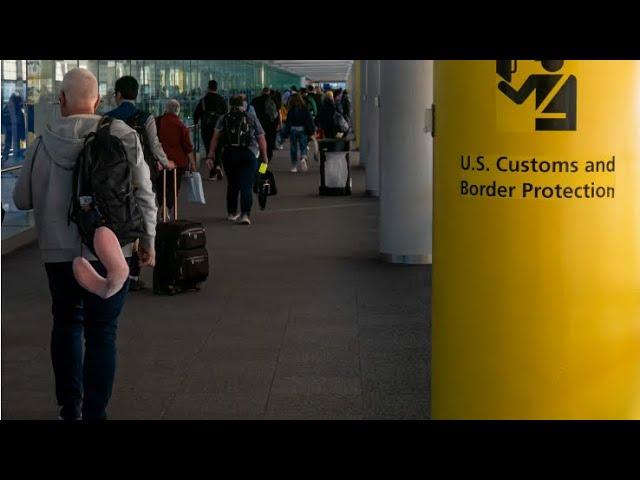In response to tightening U.S. border controls and growing uncertainties surrounding international travel, European companies are reevaluating their corporate travel policies. Increasing concerns over entry restrictions and potential disruptions have prompted firms to consider whether remote work and virtual meetings offer safer, more reliable alternatives to crossing the Atlantic. This shift signals a broader reassessment of global mobility strategies as businesses navigate the complex landscape of post-pandemic border regulations.
Rising U.S. Border Control Measures Prompt European Companies to Reelevate Travel Plans
European corporations are increasingly cautious about dispatching employees to the United States as heightened border scrutiny and stringent entry requirements create operational uncertainties. Travel disruptions stemming from extended processing times and enhanced security checks have led companies to prioritize virtual collaboration over international visits. Key concerns focus on potential delays, increased costs, and the risk of denied entry, prompting firms to reassess their approach to transatlantic business engagements.
Companies are adopting alternative strategies, such as:
- Expanding remote work and virtual meeting capabilities
- Limiting non-essential travel and consolidating trips
- Engaging in pre-travel compliance training and documentation
- Evaluating destination countries with more straightforward entry protocols
| Impact Area | Before New Measures | After New Measures |
|---|---|---|
| Average Border Wait Times | 15 minutes | 45 minutes |
| Denied Entries Reported | Less than 0.5% | Approximately 2% |
| International Business Trips | Stable | Reduced by 30% |
Impact on Business Operations and Client Relations Amid Stricter Entry Protocols
European businesses are rapidly adapting to a landscape where U.S. border controls necessitate more stringent pre-travel documentation and longer waiting times. As companies weigh the cost-benefit of international travel, many are prioritizing virtual meetings to sustain client engagement and project development. The amplified friction at entry points has not only prolonged trip durations but also introduced unpredictability, leading to disruptions in critical deal-making processes and on-site consultations.
Key repercussions on corporate operations include:
- Increased reliance on remote collaboration tools as in-person visits decline.
- Heightened logistical planning to accommodate extended clearance protocols.
- Reassessment of travel frequency and budget allocation to optimize ROI.
- Potential strain on client relations due to reduced face-to-face interaction.
| Aspect | Before Stricter Protocols | After Stricter Protocols |
|---|---|---|
| Average Travel Time | 8 hours | 12+ hours |
| Client Meetings In-Person | 75% | 45% |
| Virtual Meeting Adoption | 40% | 70% |
| Travel Budgets | Stable | Reduced by 25% |
Employee Safety and Compliance: Navigating New Challenges in International Travel
Corporations across Europe are recalibrating their international travel protocols amid mounting concerns regarding stringent U.S. border control measures and their implications on employee safety. The new landscape compels businesses to weigh the risks of potential detentions, extended questioning, and privacy invasions against the operational benefits of in-person meetings. Companies are increasingly prioritizing thorough pre-travel briefings, augmented legal support, and real-time tracking systems to ensure their staff navigate border crossings with minimal disruption and maximum security.
Key strategies adopted by organizations include:
- Enhanced visa and documentation checks prior to travel, reducing the risk of inadmissibility.
- Mandatory cultural and legal briefings to prepare employees for evolving protocols and rights awareness.
- Investment in digital tools for continuous communication and emergency assistance abroad.
| Policy Adjustment | Purpose | Impact |
|---|---|---|
| Centralized Travel Approvals | Streamline risk assessment | Reduced unsanctioned trips by 25% |
| Mandatory Training Sessions | Increase awareness of border procedures | Boosted employee confidence and compliance |
| 24/7 Support Hotlines | Immediate assistance during incidents | Faster resolution of entry delays |
Strategic Recommendations for Firms Adapting to Evolving Transatlantic Mobility Restrictions
As restrictions and heightened scrutiny at U.S. borders increasingly shape corporate travel strategies, European firms are urged to develop agile policies prioritizing both flexibility and compliance. Key measures include the implementation of comprehensive pre-travel risk assessments that go beyond traditional visa checks, factoring in real-time border control updates and health screening protocols. Equally critical is fostering closer collaboration with legal experts specializing in immigration to navigate evolving regulatory landscapes effectively. This proactive approach helps minimize unforeseen disruptions and ensures that essential business travel is conducted securely and efficiently.
To optimize the evolving scenario, companies should also capitalize on digital tools and hybrid communication models that reduce unnecessary physical travel while maintaining engagement and productivity. The following strategic priorities can guide firms through the new mobility landscape:
- Enhanced travel monitoring systems integrating AI-driven alerts for border policy changes
- Regular scenario planning to anticipate mobility restrictions and adjust operations accordingly
- Employee education programs focusing on compliance requirements and personal preparedness
- Investment in virtual collaboration platforms to maintain business continuity amid travel limitations
| Recommendation | Benefit | Impact Timeline |
|---|---|---|
| Pre-travel Risk Assessment | Reduced travel disruption | Immediate |
| Legal Partnership | Regulatory compliance | Short-term |
| Digital Collaboration Tools | Maintain productivity | Medium-term |
| Employee Training | Increased preparedness | Ongoing |
Closing Remarks
As concerns over tightened U.S. border controls persist, European companies are increasingly reassessing their travel strategies, weighing the risks and benefits of international business trips. While in-person meetings remain valuable, the evolving regulatory landscape is prompting firms to consider remote alternatives and more stringent travel policies. How these adjustments will shape transatlantic business relations remains to be seen, but one thing is clear: in today’s environment, safer may well mean staying home.




